ANTD.VN - Managing exchange rates in the current context is very difficult when external pressure is very great, while Vietnam is an open economy , businesses are very sensitive to exchange rate fluctuations.
Mixed effects
Vietnam is an open economy, therefore, exchange rate fluctuations greatly affect businesses, especially those with import-export activities and foreign debt.
For businesses with strong export activities, a small decrease in exchange rate will cause many disadvantages in the current context, when many countries are implementing policies to devalue their domestic currencies to support exports.
According to Mr. Le Tien Truong, Chairman of the Board of Directors of Vietnam Textile and Garment Group, in 2022 and 2023, after the Covid-19 pandemic and recovery, major textile and garment exporting countries such as China, Vietnam, India, Bangladesh, and Türkiye all tend to stimulate exports through devaluation of domestic currencies.
Among them, the country with the most currency depreciation is Türkiye (down 50%); second is Bangladesh with a 21% decrease in 2 years, China with a 11% decrease, while Vietnam only decreased by about 3%.
“In terms of exchange rate correlation, in 2022 and 2023, Vietnam's textiles and garments in general were about 15% more expensive than those of the top 5 countries. This is also one of the reasons why the textile and garment export industry has decreased by 10% in the past 2 years, and is the country with the largest decrease among the 5 textile and garment exporting countries,” said the leader of the Vietnam Textile and Garment Group.
On the contrary, for businesses that import or have large foreign currency debt, exchange rate stability is very important. According to Mr. Le Manh Hung, Chairman of the Board of Directors of Vietnam Oil and Gas Group (PVN), currently, PVN's foreign currency debt is 38,000 billion, equivalent to about 1.5 billion USD, so fluctuations and exchange rate risks greatly affect the group's production and business activities.
“We are very pleased that in recent times, the State Bank has operated stably, helping businesses minimize the impact of exchange rate fluctuations. We hope that in the coming time, the State Bank will have solutions to keep the exchange rate stable,” said Mr. Hung.
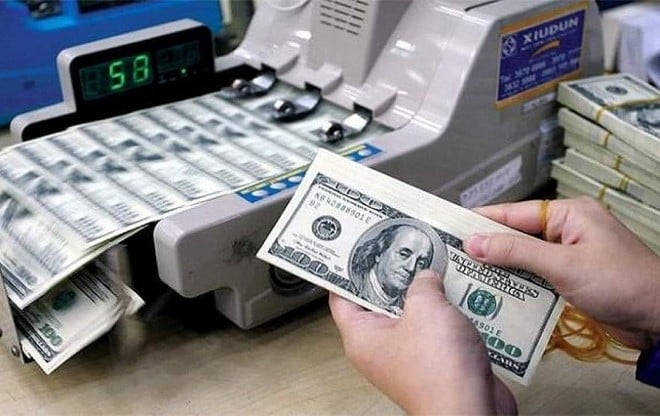 |
Import-export businesses are very sensitive to exchange rate fluctuations. |
Similarly, the leader of Vietnam Airlines also said that for this enterprise, a 1% increase in exchange rate would cause the enterprise to lose up to 300 billion VND. "If it increases by 5%, our annual costs will increase to 1,500 billion VND, so Vietnam Airlines really wants the exchange rate to be stable at the lowest possible level" - Mr. Dang Ngoc Hoa, Chairman of the Board of Directors of Vietnam Airlines suggested.
Efforts to reduce exchange rate pressure
Currently, the VND/USD exchange rate is under a lot of pressure in the context that the US Federal Reserve (Fed) is unlikely to reduce interest rates before June and the rate of reduction may be slower than the market previously expected. Therefore, managing the exchange rate is not an easy task.
It was noted that last week, the operator had moved to restart the channel of withdrawing money through treasury bills to partly support the exchange rate, after 4 months of not using this service.
As of March 14, the State Bank has continuously issued 4 sessions of treasury bills, with the amount of money withdrawn each session being approximately 15,000 billion VND, thereby withdrawing a total of nearly 45,000 billion VND with a term of 28 days and an interest rate of 1.4%/year.
The State Bank of Vietnam (SBV) has withdrawn money through the treasury bill channel in the context of excess short-term VND liquidity in the banking system as credit growth in the first two months of the year remained negative and low interbank interest rates are putting pressure on the exchange rate.
According to experts, reducing excess liquidity will help increase interbank interest rates, reduce the gap with USD interest rates, thereby supporting exchange rate stability. According to observations, interest rates in the interbank market have also started to increase. Compared to March 11, overnight interest rates have nearly doubled, from 0.76%/year to 1.47%/year.
The 1-week and 1-month terms also increased slightly, from 1.29%/year and 1.45%/year to 1.68%/year and 2.01%/year, respectively...
Regarding the USD exchange rate, this morning, the State Bank increased the central exchange rate by 12 VND, listing it at 23,979 VND/USD. Last week, the central exchange rate had 2 sessions of decrease and 3 sessions of increase, but ended the week with a decrease of 17 VND compared to the end of the previous week.
At banks, Vietcombank this morning listed the USD trading price at 24,570 - 24,910 VND/USD, up 40 VND compared to yesterday's session. Overall, the exchange rate at this bank has increased by 70 VND this week.
Meanwhile, in the free market, after the hot increase last weekend, this week the USD has been fluctuating, increasing and decreasing, and is currently trading around 25,480 - 25,560 VND/USD. The USD in this market has somewhat cooled down compared to the peak of 25,800 VND reached last weekend.
According to economic experts, the pressure on exchange rates in the coming time will still be very high. Therefore, along with the management of the State Bank, to prevent exchange rate risks, businesses can use derivative financial instruments such as foreign currency futures and swap contracts (SWAP).
Thereby, importers can take the initiative in USD prices because the exchange rate has been determined in the contract when signing...
Source link






![[Photo] Deep sea sand deposits, ancient wooden ship An Bang faces the risk of being buried again](https://vphoto.vietnam.vn/thumb/1200x675/vietnam/resource/IMAGE/2025/11/13/1763033175715_ndo_br_thuyen-1-jpg.webp)

![[Infographic] Cross-exchange rates to determine taxable value from November 13-19](https://vphoto.vietnam.vn/thumb/402x226/vietnam/resource/IMAGE/2025/11/13/1762998368820_screen-shot-2025-11-13-at-08365320251113083702.png)












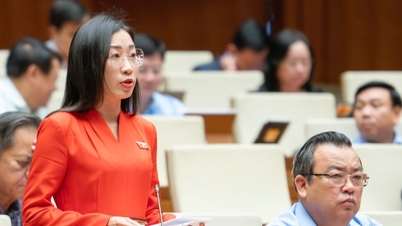









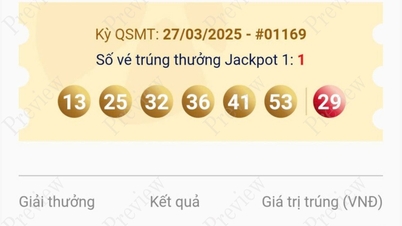

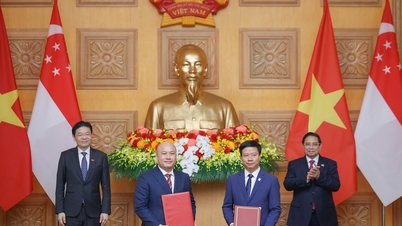







































![[Photo] Panorama of the 2nd Vietnam-Cambodia Border Defense Friendship Exchange](https://vphoto.vietnam.vn/thumb/402x226/vietnam/resource/IMAGE/2025/11/13/1763033233033_image.jpeg)


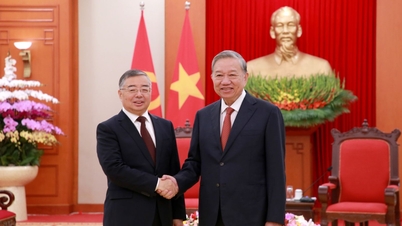






















![Dong Nai OCOP transition: [Article 3] Linking tourism with OCOP product consumption](https://vphoto.vietnam.vn/thumb/402x226/vietnam/resource/IMAGE/2025/11/10/1762739199309_1324-2740-7_n-162543_981.jpeg)







Comment (0)